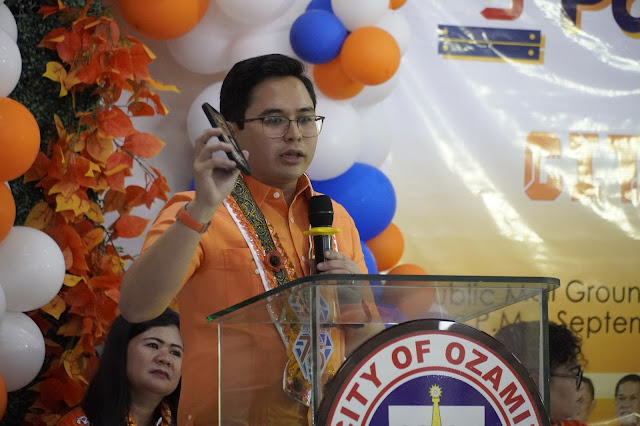BSP launches Paleng-QR Ph Plus program to boost digital payments in Ozamiz
by Bhal Cabrera
In a bid to accelerate the adoption of digital payments across the Philippines, Bangko Sentral ng Pilipinas (BSP) initiated the Paleng-QR Ph Plus program, a joint effort with the Department of the Interior and Local Government (DILG) during an activity at the Ozamiz City Public Mall set to transform the way Filipinos conduct transactions in public markets and local transportation, specifically targeting tricycles.
The Paleng-QR Ph program is designed to bolster the country's digital payment ecosystem by encouraging the widespread use of cashless payments among market vendors, community shopkeepers, and tricycle operators and drivers (TODA) in all cities and municipalities.
It acknowledges the crucial role market purchases and local transportation fares play in the daily financial lives of Filipinos and aims to make transitioning to cashless transactions more accessible.
Inspired by student policy competition finalists from the University of the Philippines–Los Baños at the 2021 BSP Youth Summit, the program has evolved to Paleng-QR Ph Plus in November 2022.
The "Plus" signifies its expanded reach to encompass various businesses beyond market vendors and TODA, as outlined in the joint memorandum circular (JMC) signed on June 22, 2022.
The DILG and BSP jointly issued this crucial memorandum circular on June 21, 2022, mandating local government units (LGUs) to implement the Paleng-QR Ph program.
The JMC lays out the implementation guidelines and the roles and responsibilities of key program participants, including LGUs, DILG, BSP, and participating financial service providers (FSPs).
Under the program, LGUs are expected to formulate policies and ordinances to promote and, in some cases, mandate the use of QR Ph digital payments.
They will also facilitate the onboarding of these target users onto QR Ph-ready transaction accounts, collaborating with FSPs equipped with QR Ph capabilities.
In this regard, the Local Government Unit of Ozamiz has already taken proactive steps by enacting City Ordinance No. 1275-2023 in line with the Paleng QR PH Plus Program.
Participating FSPs will provide critical support, including customer assistance booths and QR code printouts during LGU-organized "account opening days." Meanwhile, the DILG and BSP will offer technical assistance to LGUs in account onboarding, digital payments, and financial literacy, playing a pivotal role in raising awareness about the Paleng-QR Ph program.
The program comprises several key components, including LGUs issuing policies to encourage QR Ph digital payments, LGUs assisting in merchant and local transport operator onboarding, and the provision of financial literacy programs on topics such as the effective use of digital payments in businesses, financial services for micro and small enterprises, and financial consumer protection.
With the launch of the Paleng-QR Ph Plus program, the BSP and DILG aim to revolutionize the way Filipinos conduct transactions, ushering in an era of convenient and secure digital payments across public markets and local transportation networks.
This initiative is a significant step towards a cashless Philippines, enhancing financial inclusion and promoting economic growth. (Bhal Cabrera)
 |
| Ozamiz Mayor Atty Indy Oaminal takes the lead in the launch activity, emphasizing the importance of Paleng-QR PH Plus for the city and its residents. (Bhal Cabrera/ Asenso Ozamiz News Channel) |



Comments
Post a Comment